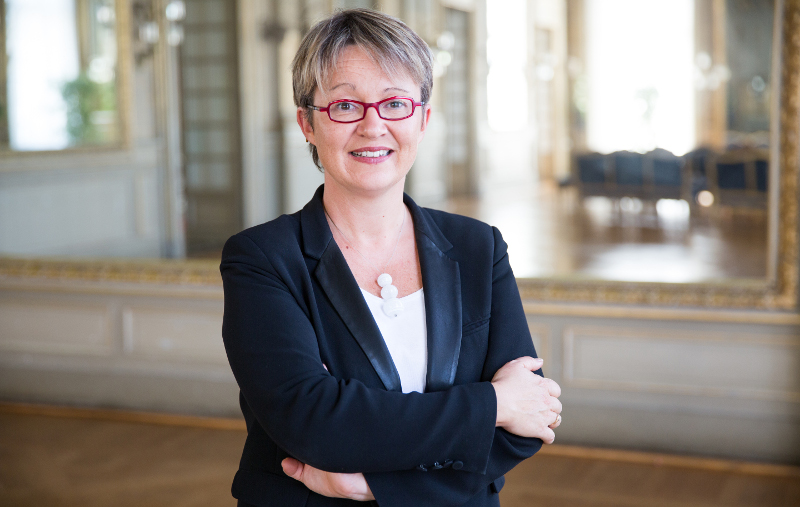 © Mairie de Rennes
© Mairie de Rennes
Interview with Ms. Nathalie Appéré, Mayor of Rennes
We are pleased to present you the full version of the interview of the Bulletin 22 with the Mayor of Rennes, Ms. Nathalie Appéré.
Rennes is…
…cofounder of the IAEC along with Turin and Barcelona. It is a major cause of pride for the city and for all its inhabitants, and shows the permanent will of the City Council of Rennes to place education at the heart of its political programme. A political programme whose educational ideal is, at the same time, the basis for its social programme. The municipal team, elected in March 2014, aims to go ahead with, and to reaffirm, this commitment, giving special attention to the neighbourhoods which are considered to be priority due to the “Politique de la ville” (French government urban policy that has as its goal the rehabilitation of the most disadvantaged areas and the fight against exclusion).
How have you managed to place education at the core of the political programme?
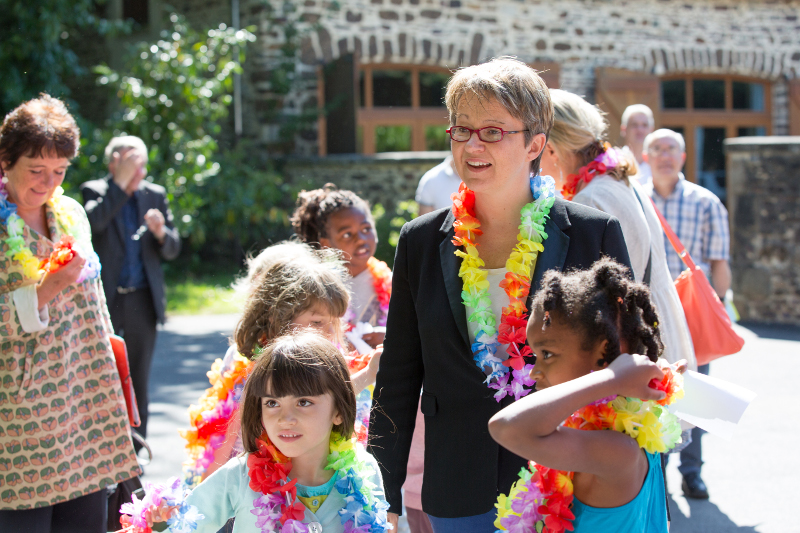 The elaboration and putting into practice of the Local Education Contracts and later of a Local (and global) Education Project (LEP) goes back to the nineteen eighties. For the last thirty years, the City Council of Rennes has made education a driver of development; an instrument for providing a response to the local democratic needs and for fighting against inequalities.
The elaboration and putting into practice of the Local Education Contracts and later of a Local (and global) Education Project (LEP) goes back to the nineteen eighties. For the last thirty years, the City Council of Rennes has made education a driver of development; an instrument for providing a response to the local democratic needs and for fighting against inequalities.
Rennes Educating City has developed its approach and its education policies in close collaboration with the Ministry of Education, the Caisse d’Allocations Familiales (a French public organism that manages the social and family provisions) and the local fabric of associations, taking as its background structure the notion of “territory of learning”. The associations of non-formal education, as well as the League of Teaching, have become the historical and essential collaborators of the City Council of Rennes in terms of the issues related to the accompanying of the schools and the citizenship.
The transversal dimension of the projects has always been boosted, and they have tackled education beyond not only its stakeholders and the traditional fields related to them. Therefore, within the framework of the Local Education Project, other fields of action have been taken into account, such as culture, sports, urban planning and the environment.
So as to facilitate the debate and for reaching consensus, organisms for its follow up and governance have been created in which the different social agents and collaborators represented can be found.
This approach based on co-education responds to the demand of a school open to the environment, to the facilities and local agents. The Local Education Project of the City Council of Rennes, which goes from 0 to 18 years old, is based on a diagnosis divided in terms of needs and of social demands, and has been conceived so that all the time of the boys and girls should be educational. This implies guaranteeing and supporting the educational continuity, organising the time “inside” and “outside” the school timetables which, in practice, is achieved thanks to the complementary nature and coherence of the actions carried out by the institutions, the network of associations, and the agents of the civil society which collaborate or intervene in a neighbourhood.
So as to achieve all of this, the City Council of Rennes decided to include, from the outset, the extracurricular fields within the framework foreseen in the LEP. In this sense, the recent reform of the schools curriculums has allowed (with an investment of around 2 million Euros) the basic education to be backed up by including the interventions carried out outside the school within an invariable objective of educational continuity and to respond, in this way, to the growing parental needs and of family organisation.
Currently, the attainment of this educational ideal is structured around the six major goals of the new Local Education Project of Rennes:
- To strengthen the educational continuity and the organisation of the different time of the girls and boys.
- To fight against the educational inequalities and school drop-out.
- To highlight the value and provide support for the parental involvement.
- To boost the use of the digital technologies in the schools.
- To ensure the coexistence based on the principles of laicism or secularism, citizenship and the fight against discriminations.
- To contribute to the cultural and artistic opening up from childhood.
These objectives are spread within the community of Rennes through the Educational Projects of the City, the aim of which is to provide a response adapted to the specific problems of each neighbourhood.
Rennes has a population of approximately 210,000 inhabitants and more than 6,000 associations from all the sectors that are extraordinarily dynamic. How can this density of associations be explained? What type of support does the City Council offer to these associations and what do these contribute to the municipality?
The wealth and diversity of the association network form part of the identity of our city and provide it with a dynamism that has become a reference at the national level in many aspects. Maintaining this dynamic represents a constant challenge for our city and obliges us to deploy different forms of support. We are on the eve of renewing the concessions for the exploitation of the main neighbourhood facilities by means of which we aim to foster the mutual knowledge and territory projects. Furthermore, the organisation of events, within a context of a limited budget, continues to be a good way for the network of associations to express themselves, which we help to foster. As well as the events of international character, such as the Trans Musical Encounters, from the City Council we provide support for all the events that the territory promotes, especially those which are amateur. This mix and the interactivity between the practices and the initiatives are, currently, something very distinctive of the city of Rennes.
One in four inhabitants of Rennes are between 15 and 24 years old and the city counts on a university population of 60,000 students. How do you foster the autonomy and citizenship among youths?
This demographic trend shows the attraction generated by the city of Rennes. The accompanying of this age group cannot be separated from the transformations that the society is undergoing as a whole, above all in the fields of training and employment. The way towards autonomy and the full citizenship of the adolescence and youth in general requires a transversal approach towards the urban problems of our times. In this sense, the City Council of Rennes fosters coexistence by providing support to the student movements related to these issues and those which are respectful towards the environment. Special recognition is deserved for the work of school accompaniment carried out by the Association de la Fondation Étudiante pour la Ville (an association for university social volunteering) in the most disadvantaged neighbourhoods.
Another notable action of the Government are the links established with the local universities. The labour opportunities and the job offers in the field of digital applications and the new technologies constitute a major incentive for youths and contribute to giving a positive image to the Mayor’s Office.
Your government has invested a lot of effort and resources in the requalification of the neighbourhoods and the construction of public housing and infrastructures. What is the aim of these actions? What role does the citizenship play in these transformations?
The social heterogeneity has always conditioned the municipal policy in this field. With a local housing programme that foresees the construction of 1,500 new dwellings a year, we aim to construct the city of the future based on social cohesion and coexistence. The setting in motion of two major projects of urban renovation in two neighbourhoods Politique de la ville, Maurepas and Blosne, are a clear example of this policy. Within this context, one of the keys, if not the main key, of the success of the projects is the participation of the citizenship which, in this case, has been dealt with from the perspective of a participative process called “Fabrique Citoyenne” inspired by the recommendations formulated within the framework of the renovation of the “city contracts” (collaboration agreements between the State, the local agents and their collaborators, for the urban rehabilitation). The Councils of Citizens and other spaces for participation, together with the constant will to “go towards”, are indispensable for collecting opinions, ideas and projects from the inhabitants from these neighbourhoods. Finally, the regulations for the adjudication of the social housing in Rennes, shared by the different promoters and the different institutions which hold the competence in those matters, are the result of a shared aim for achieving transparency and social justice and currently they enjoy recognition at a national level.
Could you explain some of the actions of your government aimed at fostering new behaviour with regard to the respect for the public space and to the coexistence between different generations and cultures? How can you boost the sense of belonging to the city?
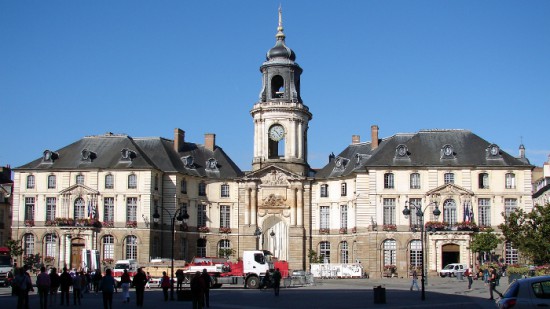 The regulation and shared use of the public space in a changing city such as Rennes, are the focus and target of many public policies. The city has been undergoing a growing crossbreeding of cultures and generations. The newcomers, becoming more and more numerous, contribute to the social and cultural opening up of the city and encourage us to actively foster the mutual knowledge as well as intercultural issues. This reality leads, mainly, to achieving an affirmed citizenship and secularism and one which is accepted by everyone and for everyone.
The regulation and shared use of the public space in a changing city such as Rennes, are the focus and target of many public policies. The city has been undergoing a growing crossbreeding of cultures and generations. The newcomers, becoming more and more numerous, contribute to the social and cultural opening up of the city and encourage us to actively foster the mutual knowledge as well as intercultural issues. This reality leads, mainly, to achieving an affirmed citizenship and secularism and one which is accepted by everyone and for everyone.
I decided to create a Consultative Committee on Secularism with the aim of sharing and defining guidelines and lines of action that respond to the specific problems that occur on a daily basis. This work, which constitutes the backbone of the municipal programme, is based around the different topics related to the school, the public spaces, the life of the associations and living in the diversity.
In general terms, the action of the public services in the everyday life also requires a greater capacity for the reaction and adaptation of all the public agents. The territorial distribution of the public services and policies that is carried out by the City Council of Rennes pursues this goal and, on the other hand, the implementation over the forthcoming months of participative budgets will contribute even more towards highlighting this sense of belonging to the community, and of solidarity.
Innovation, sustainable urban development, quality of life, the local democratic model and the cultural dynamic have made Rennes a very attractive city. Over the next ten years the arrival of 60,000 new inhabitants is foreseen in the metropolitan area of Rennes. How is the city preparing to receive them?
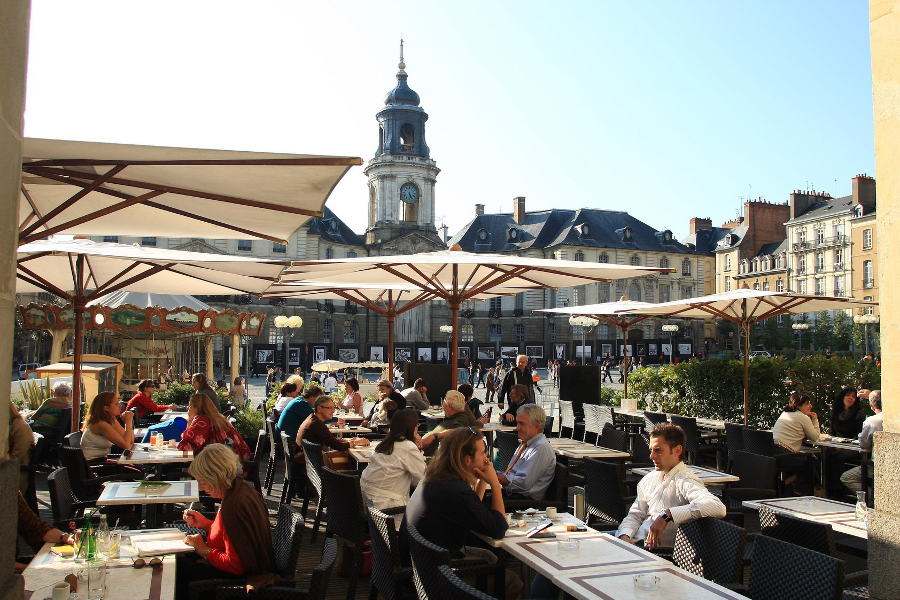 As I have mentioned previously, the demographic development of the city of Rennes demands planning and appropriate measures, especially with regard to public services and infrastructures. The construction of a second metro line that connects the neighbourhoods of the city from east to west is one of the structuring projects of the decade. The Mobility Council, an organ of reference in this field, allows the actions to be planned in an agreed and coherent way. The Office of Time, created more than ten years ago, is another body that helps us to understand the urban transformation and to create services that adapt to these.
As I have mentioned previously, the demographic development of the city of Rennes demands planning and appropriate measures, especially with regard to public services and infrastructures. The construction of a second metro line that connects the neighbourhoods of the city from east to west is one of the structuring projects of the decade. The Mobility Council, an organ of reference in this field, allows the actions to be planned in an agreed and coherent way. The Office of Time, created more than ten years ago, is another body that helps us to understand the urban transformation and to create services that adapt to these.
With regard to public services, I would like to highlight the investments in the field of education, with the construction of three new school groups and the enlargement of various schools during this mandate, to respond to the need to face up to a school-aged population which has been growing for the past eight years.
The City Council of Rennes has been the first French collective that has received the Label of Professional Equality “Label Égalité”, awarded by the Association AFNOR in 2008. What’s the secret?
It’s a question of formally adapting a political will and rethinking the internal social practices and rules of the municipal services. This label, renewed in 2014, has allowed us to conciliate better the professional and private lives and to turn equality between men and women into an instrument of social dialogue in the core work of the Administration of Rennes.
Rennes has an area of 40m2 of green spaces per inhabitant and the City Council is responsible for its maintenance and for ensuring the quality of these spaces. The inhabitants, for their part, dedicate themselves to the cultivation of micro plots of land. Could you explain some of the awareness-building actions regarding sustainable development carried out by your Government, aimed at modifying the lifestyle of the population?
We haven’t used chemical products for many years in the green spaces. Our Department of Gardens doesn’t use pesticides and uses mechanical or thermal methods to carry out the maintenance of the green areas of the city. We have also set in motion the programme “Let’s decorate our walls” that allows the citizens to create vertical gardens with climbing plants on the façades of their dwellings, with the aim of achieving a better thermal insulation and the proliferation of plants in the city. Furthermore, we have reintroduced beehives right in the centre of the city and charged the collection of the honey to the beekeepers from the surrounding areas of Rennes. In collaboration with the Administration of Rennes Métropole, we have developed an ambitious programme for the deployment of devices for collective compost located at the entrance of the dwellings, so that the citizens can reduce their waste “production”. Furthermore, we have recently dropped 20Km/h the speed limit for the Ring road of Rennes, with the aim of improving the air quality and the road safety. And, if you want, I could go on citing many other examples!
The city of Rennes has many cultural facilities and an extensive cultural offer aimed at all publics. How does culture contribute to strengthening the identity of the city and, at the same time, to the social cohesion?
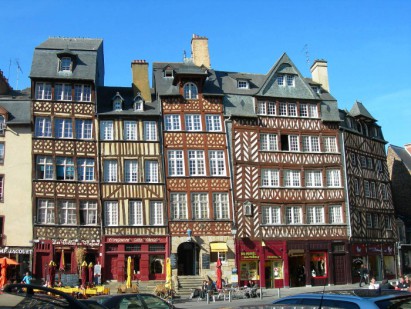 The cultural and artistic opening up in the city has boosted inclusion, both in the educational field and from the point of view of social cohesion. The issuing of the “Sortir!” (Go out!) card, which is granted according to the resources and is, therefore, accessible to the population with lower incomes, is an example of the will to make culture a shared heritage for all. In the educational field, there exists a wide offer of services which allow all children, irrespective of their origins, to enjoy leisure and cultural activities inside and outside the school timetables. The involvement of the professionals of the municipal cultural facilities and services, as well as the artists in residence or in workshops, above all, in the schools that form part of the networks of priority education (the group of schools provided with additional resources with the aim of fighting against school failure, normally in the most disadvantaged areas), are the main vectors of this emancipation policy. The imminent signing of the Local Artistic and Cultural Plan of Rennes will undoubtedly strengthen the singularity of our city. Furthermore, the future move of the Regional Conservatory to the priority neighbourhood of Blosne is another demonstration of this cultural will.
The cultural and artistic opening up in the city has boosted inclusion, both in the educational field and from the point of view of social cohesion. The issuing of the “Sortir!” (Go out!) card, which is granted according to the resources and is, therefore, accessible to the population with lower incomes, is an example of the will to make culture a shared heritage for all. In the educational field, there exists a wide offer of services which allow all children, irrespective of their origins, to enjoy leisure and cultural activities inside and outside the school timetables. The involvement of the professionals of the municipal cultural facilities and services, as well as the artists in residence or in workshops, above all, in the schools that form part of the networks of priority education (the group of schools provided with additional resources with the aim of fighting against school failure, normally in the most disadvantaged areas), are the main vectors of this emancipation policy. The imminent signing of the Local Artistic and Cultural Plan of Rennes will undoubtedly strengthen the singularity of our city. Furthermore, the future move of the Regional Conservatory to the priority neighbourhood of Blosne is another demonstration of this cultural will.
The city of Rennes has a notable international vocation. Rennes is co-founder of the IAEC and currently holds the Vice Presidency of the French Network of Educating Cities. What message would you like to pass on to the cities that don’t yet know this world movement, so as to encourage them to join?
This long-term commitment towards the international network is much more than symbolic. It has allowed the city to express and share its reflections and actions in favour of education. An education that, in this context, is no longer sectorial and takes on a global and transversal dimension. Opening up internationally has been beneficial for many reasons: it has provided a major visibility to our actions, but, above all, it has been an opportunity to advance in the ways of acting and thinking, in consonance with the specific everyday logics and concerns of each community.
Photos:
Mairie de Rennes
Sokoljan (Wikimedia Commons).
H. Helmlechner (Wikimedia Commons)
By category
- Assembly (28)
- Award (27)
- Committee (15)
- Congress (76)
- Event (2)
- Exhibition (17)
- Experiences' bank (30)
- Forum (1)
- Katowice 2020 (1)
- Networks (117)
- Online event (1)
- Out of Category (50)
- Publications (97)
- Training (21)
- Videos (6)
- World International Day (67)
